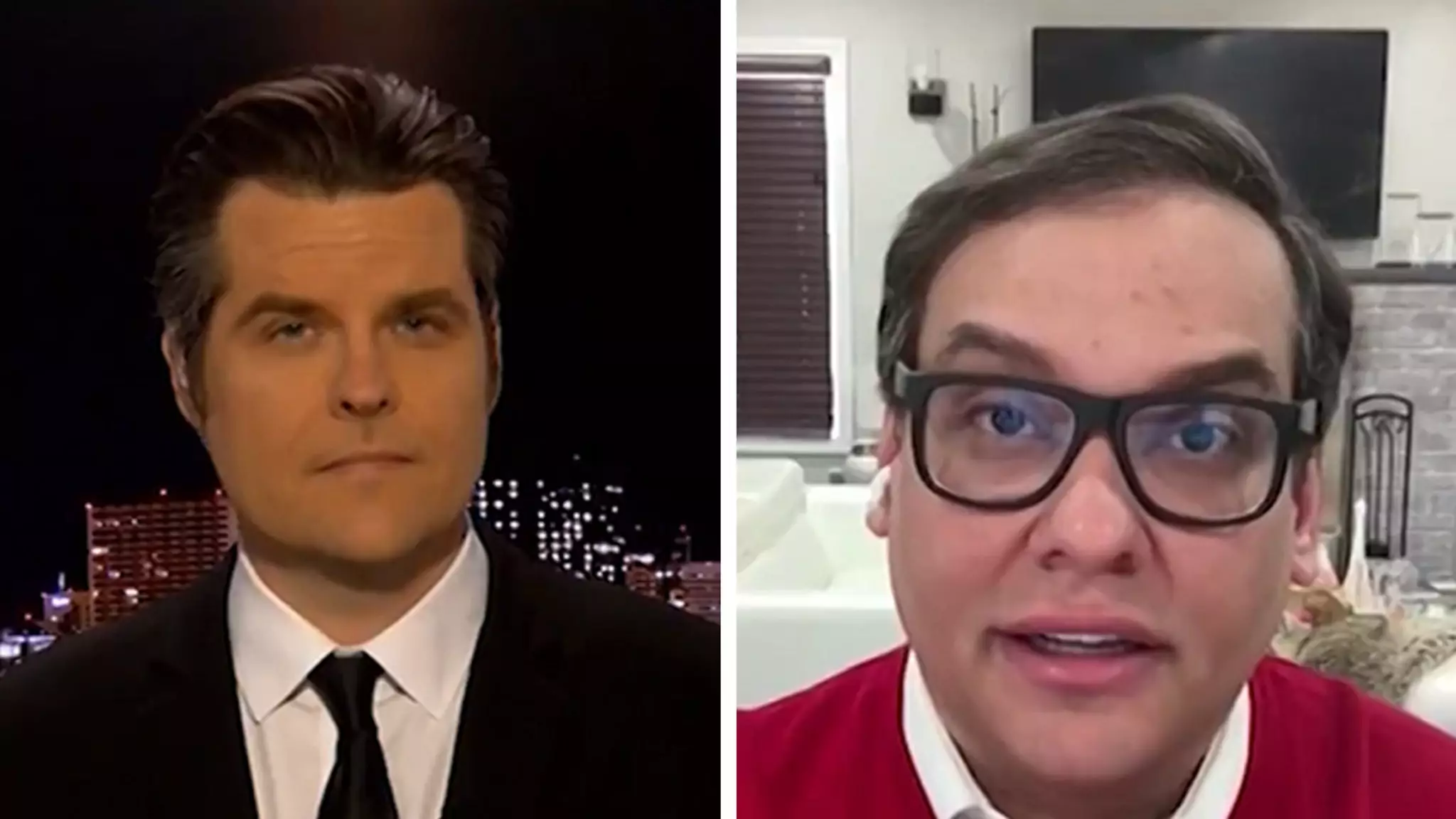George Santos, the former congressman from New York, has become a prime example of the tumultuous intersection of politics and scandal. With his background marred by accusations of fraud and identity theft, Santos is now facing the grim reality of potential incarceration. As he prepares for his sentencing, he has made headlines once again—not for his political rhetoric or policies, but for an unusual request: solitary confinement. The audacity of asking to be isolated from the general prison population speaks volumes about his mindset and the unique position he feels he has occupied in American politics.
The Mindset Behind Solitary Confinement
Santos has expressed concern for his safety among the incarcerated population, particularly because of his vocal opposition to gangs during his time in Congress. His conversations with Matt Gaetz revealed a disturbing self-awareness—claiming that his past as a congressman makes him a target behind bars. This sense of self-preservation raises questions about his accountability. Is Santos attempting to sidestep the consequences of his actions by seeking isolation? His narrative of victimhood, framed by the looming specter of violent gang associations, seems tailored to garner sympathy rather than confront the realities of his convictions.
A Witch Hunt or Accountability?
Santos dismisses his legal troubles as a “witch hunt,” positioning himself against what he perceives to be a politically motivated attack. This rhetoric, reminiscent of other high-profile cases, serves not only as a defense mechanism but also as a rallying cry for those who share his sentiment. However, this allegation, when explored, reveals a glaring inconsistency. If he truly believes he is being targeted unfairly, why then does he seek isolation? Shouldn’t he be prepared to confront his accusers, rather than retreating into a self-imposed exile?
The Broader Implications of Privilege
In a world where incarceration disproportionately affects marginalized communities, Santos’ plea for heavy security and separation from others raises alarm bells. His request underscores a significant privilege enjoyed by some over others—the idea that one’s status can influence the treatment received within the criminal justice system. When a politician is insulated from the very consequences they create with their actions, it becomes a troubling portrayal of justice. There are many individuals behind bars who would never have the luxury of such a request based solely on their background, highlighting systemic inequalities that continue to plague the judicial process.
Looking Towards the Future
With a sentencing date looming, the outcome remains uncertain. Santos could be looking at a hefty prison term of up to seven years, yet his hopes of a two-year sentence indicate a lack of deep reflection on the ramifications of his actions. Will his self-imposed isolation be a fortress against perceived threats, or a solitary retreat from the reality of his actions? One thing is clear: George Santos represents a complex narrative of ambition, deception, and now, the quest for safety that may very well eclipse the political legacy he aimed to build.

